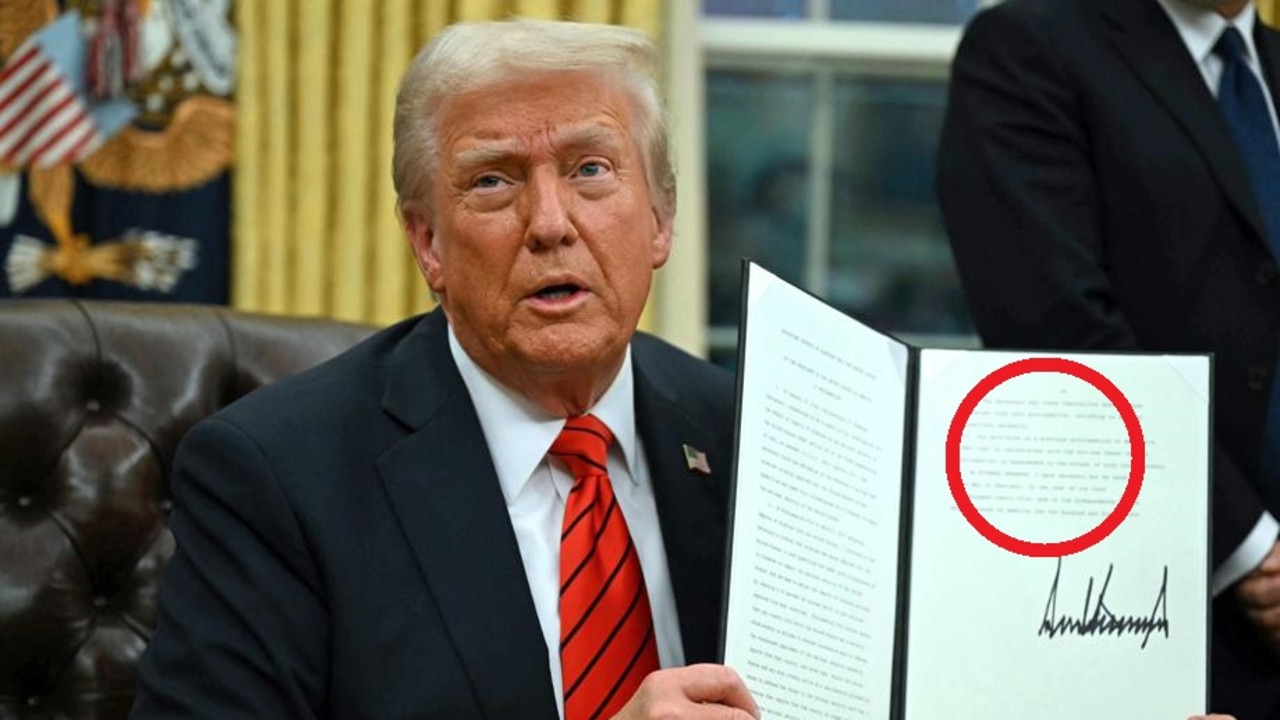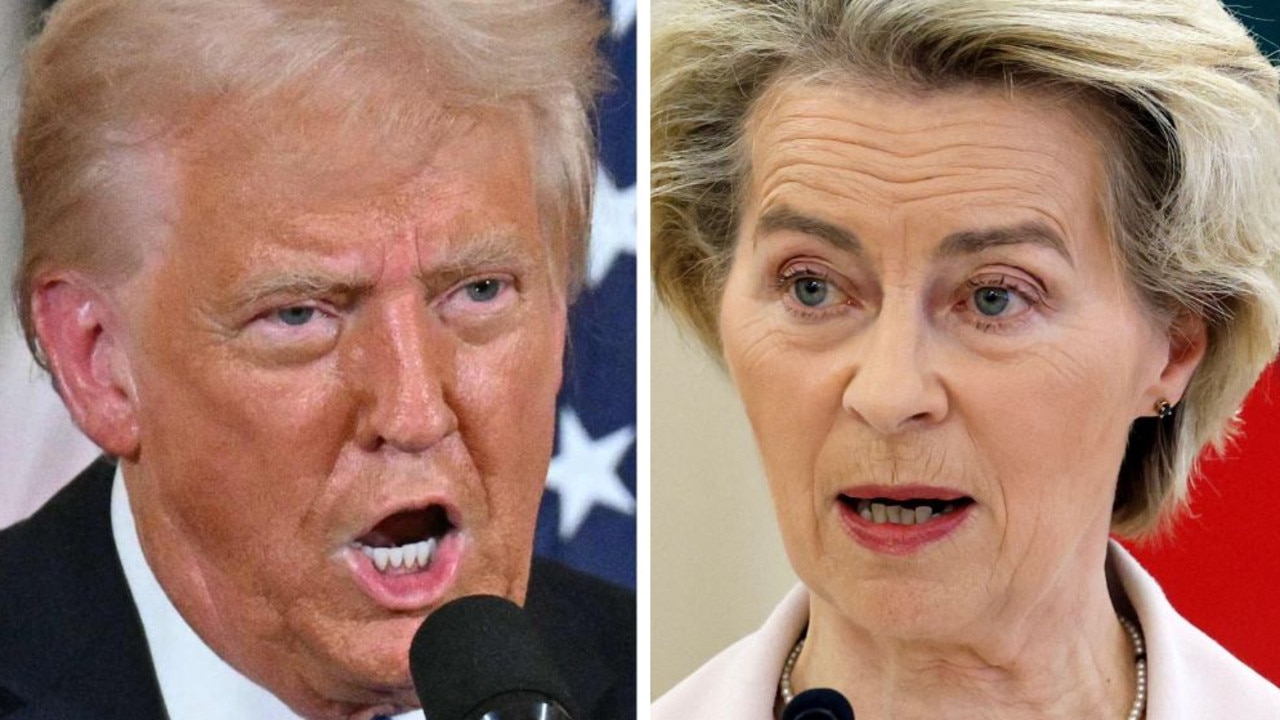Scott Morrison calls for review into Covid-19 origins at United Nations General Assembly
In his address to the UN General Assembly, Scott Morrison said an independent review of how Covid-19 emerged was crucial.
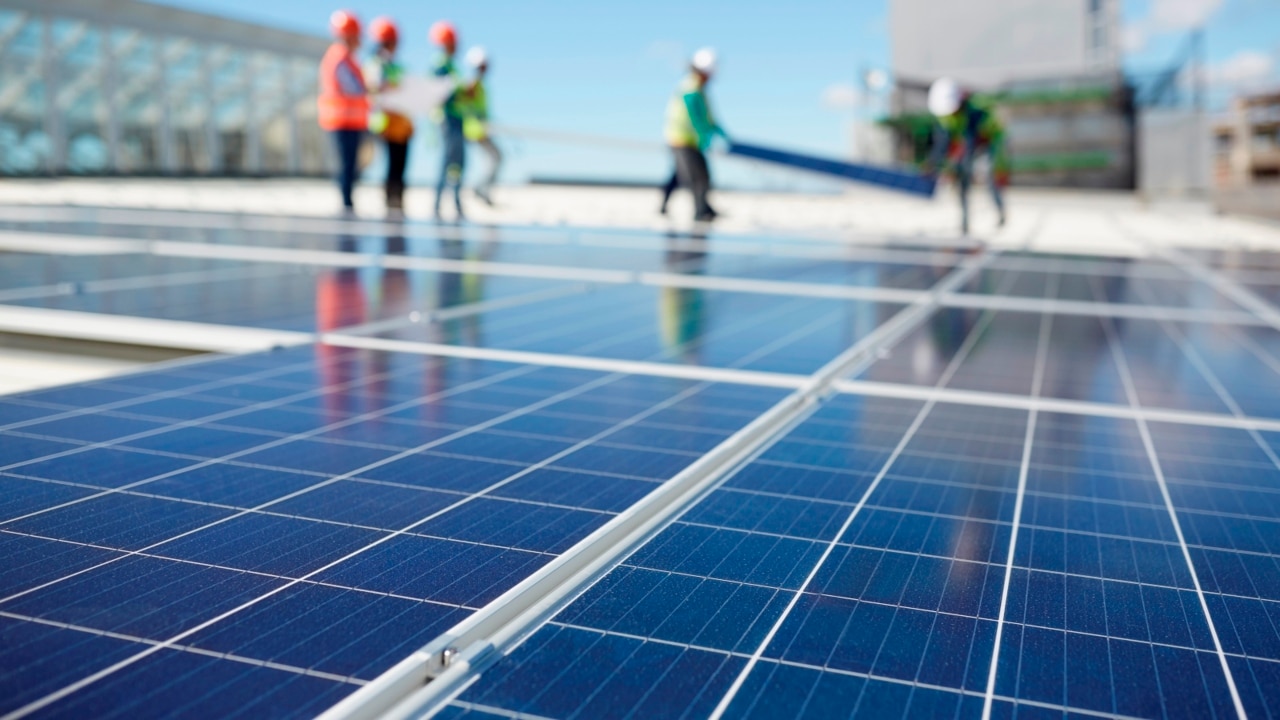
World
Don't miss out on the headlines from World. Followed categories will be added to My News.
Scott Morrison called for accelerated efforts to identify the origins of Covid-19 and for the reform of the World Health Organisation to prevent future pandemics, in a speech to the United Nations General Assembly on Saturday.
The Prime Minister also committed Australia to future net zero greenhouse emissions, and pledged $1.5 billion in “practical climate finance” to help Pacific nations reduce emissions and adapt to climate change.
He promised to reveal Australia’s long term emissions reduction strategy before November’s UN Climate Change Conference in Glasgow, he said.
In response to the global pandemic, a “stronger, more independent World Health Organisation, with enhanced surveillance and pandemic response powers” should be the goal of all member nations.
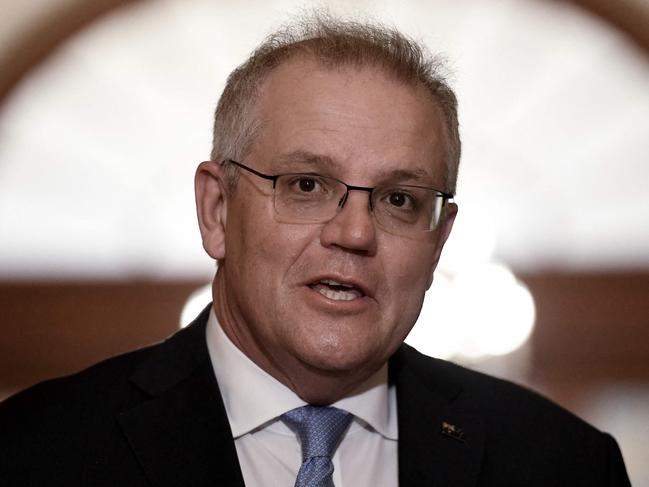
An independent review of how Covid-19 emerged was crucial.
“Understanding the cause of this pandemic, not as a political issue, but as being essential, simply, to prevent the next one.
“We need to know so we can prevent this death and this calamity being visited upon the world again. That can be our only motivation.”
Morrison spoke in his virtual address of growing tensions and security challenges in the Indo-Pacific region and said Australia’s alliances with like-minded nations are aimed at promoting peace through strength.
“The global strategic environment has rapidly changed, indeed deteriorated, in many respects, particularly in the Indo-Pacific region where we live here in Australia.
“The changes we face are many: … tensions over territorial claims, rapid military modernisation, foreign interference, cyber threats, disinformation and, indeed, economic coercion.”
Australia’s interests rest on “an open, inclusive and resilient Indo-Pacific” with Covid-19 having underscored the “vital importance of international co-operation and co-ordination”.
He listed our partnerships with “like-minded nations … who share that purpose of peace, stability and security”: the Pacific Islands Forum; ASEAN; the Association of South East Asian Nations; the Quad alliance with the US, Japan and India; and the new “Enhanced Trilateral Security” partnership — AUKUS, with the US and the UK.
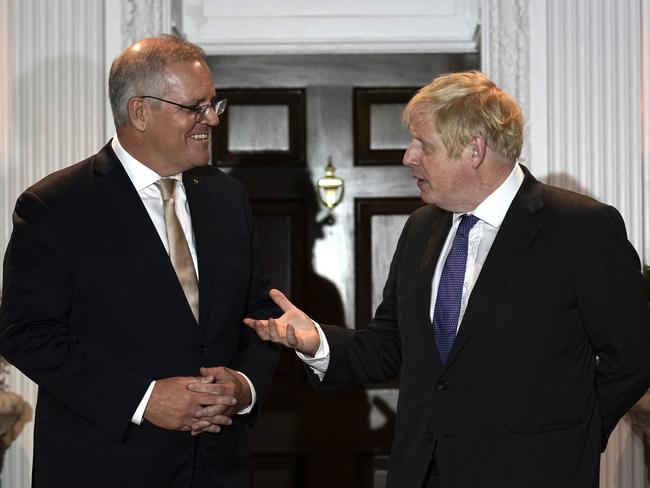
Countries must pursue their interests “in ways that are mutually respectful and support stability and security, because we want to maintain an open, rules-based international system that supports peace, prosperity, human dignity and the aspirations of all sovereign nations.
“A global order where sovereign nations can flourish, free from coercion, because of collaborative and purposeful action.”
In committing to future net zero emissions, he said: “Australia is determined to play our part in meeting the global challenge of climate change …
“We know the world is transitioning to a new energy economy.
“It’s no longer about if — or even when, for that matter. It’s about how.”
He boasted that Australia has a “proven track record when it comes to setting, achieving and exceeding our commitments to responsibly reduce greenhouse gas emissions …
“We are well on the way to exceed our 2030 Paris commitment of reducing greenhouse gas emissions by 26 to 28 per cent below 2005 levels.
“We will meet it and we will beat it — and we’ll beat it strongly.”
PM’S US TRIP ALL ABOUT CHINA
Scott Morrison’s trip to the US is all about countering Chinese aggression and he has found receptive allies in Joe Biden, the UK’s Boris Johnson, India’s Narendra Modi and Japan’s Yoshihide Suga.
On Friday at the White House, President Biden was to host the PM and the leaders of India and Japan for the historic first in-person meeting of the “Quad”, aka the Quadrilateral Security Dialogue.
No one involved has mentioned the dragon in the room, but when you hear the words “like-minded friends”, that is code for “not China”.
Mr Morrison has been instrumental in rebooting the Quad after two decades of irrelevance, and describes it as “complimentary” to the new nuclear-powered submarine alliance, AUKUS, which he quietly orchestrated between Australia, the UK and the US.
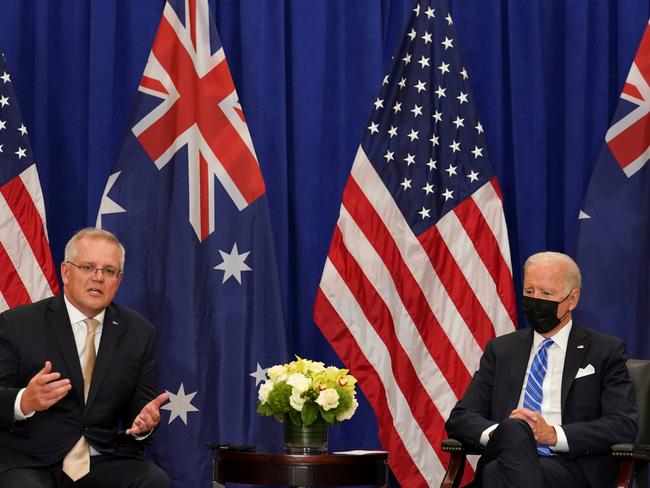
The threat posed by China – impossible to ignore after the pandemic that began in Wuhan – is the motivating spirit of the overlapping groupings, with America and Australia the link between the two.
It is a diplomatic victory for Mr Morrison but also a lifeline for Biden’s foreign policy credibility, which was badly dented in the eyes of the world by his bungled military withdrawal from Afghanistan.
While Quad leaders have been careful not to antagonise China, the shadow of Beijing hung over their one-day meeting. Their discussions were to revolve around “the independence of the Indo-Pacific (and) peace and stability in the region”, said Mr Morrison, but also clean energy, supply chain resiliency, vaccine diplomacy and economic recovery from Covid.
On the eve of the Quad summit, Mr Morrison met his “dear friend” Mr Modi in a mask-to-mask encounter at the historic Willard hotel where they discussed regional security and clean energy.
“We agreed to go forward with a low emission technology partnership, a partnership that will focus on hydrogen development (and) ultra low-cost solar … to support their energy transition,” said the PM.
He has not made a final decision on a net zero emissions timeline before 2050, but “we will be considering it further. Australia’s ambition (is) to move toward achieving zero as soon as possible … Australia will certainly do our bit (to) meet the commitments we’ve made.”
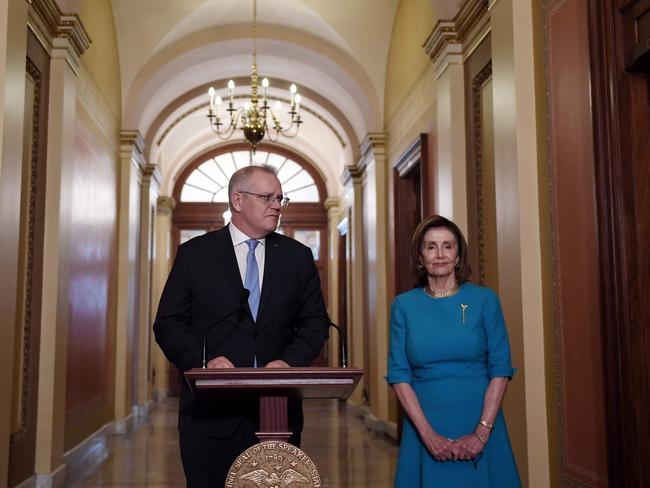
While being condemned in some quarters back home as a climate denier, Mr Morrison was also feted in Washington by Nancy Pelosi, who said he was “leading the way” on climate change.
The Washington trip has been overshadowed by a diplomatic rift with France over Australia cancelling a $90bn contract to buy French submarines in favour of nuclear-powered subs through the AUKUS alliance with the US and the UK.
Mr Morrison revealed on Thursday that he tried to make “direct contact” over the phone with French President Emmanuel Macron at 8.35pm the day before the joint AUKUS announcement last week but that when his calls were rebuffed he “directly messaged him Australia’s decision”.


